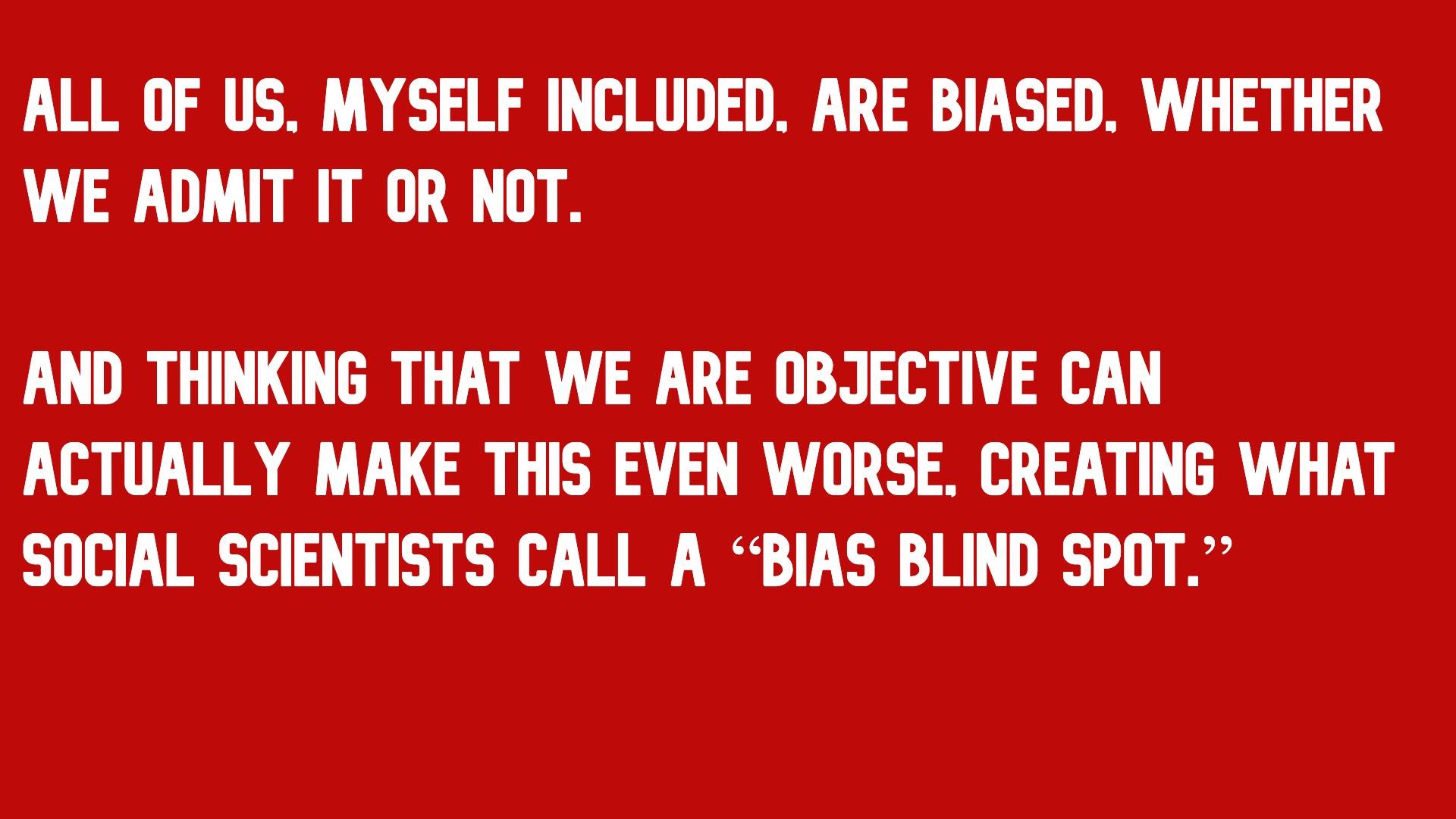 IMPORTANT NOTE: All of us, myself included, are biased, whether we admit it or not. And thinking that we are objective can actually make this even worse, creating what social scientists call a “bias blind spot.” This blind spot causes people to be too confident about their own powers of objectivity so that they fail to correct for bias.
IMPORTANT NOTE: All of us, myself included, are biased, whether we admit it or not. And thinking that we are objective can actually make this even worse, creating what social scientists call a “bias blind spot.” This blind spot causes people to be too confident about their own powers of objectivity so that they fail to correct for bias.
The leadership ambition gap, what would you do if you weren’t afraid
- A recent survey of Millenials found that women were just as likely to describe themselves as ambitious as men. Millenial women are less likely than their male peers to characterize themselves as “leaders”, “visionaries”, “self-confident”, and “willing to take risks” [12]
- Most leadership positions are held by men, so women don’t expect to achieve them, and that becomes one of the reasons they don’t. The same is true for pay. More generally earn more than women, so people expect women to earn less. And they do.
- Stereotypically, boys are better at math and science than girls. When girls are reminded of their gender before a math or science test, even by something as checking off an M or F box at the top of the test, they perform worse[27]
- Stereotype threats discourage girls and women from entering technical fields and are one of the key reasons that so few study computer science. [28] As a Facebook summer intern once told me, “In my school’s computer science department, there are more Daves than girls.”
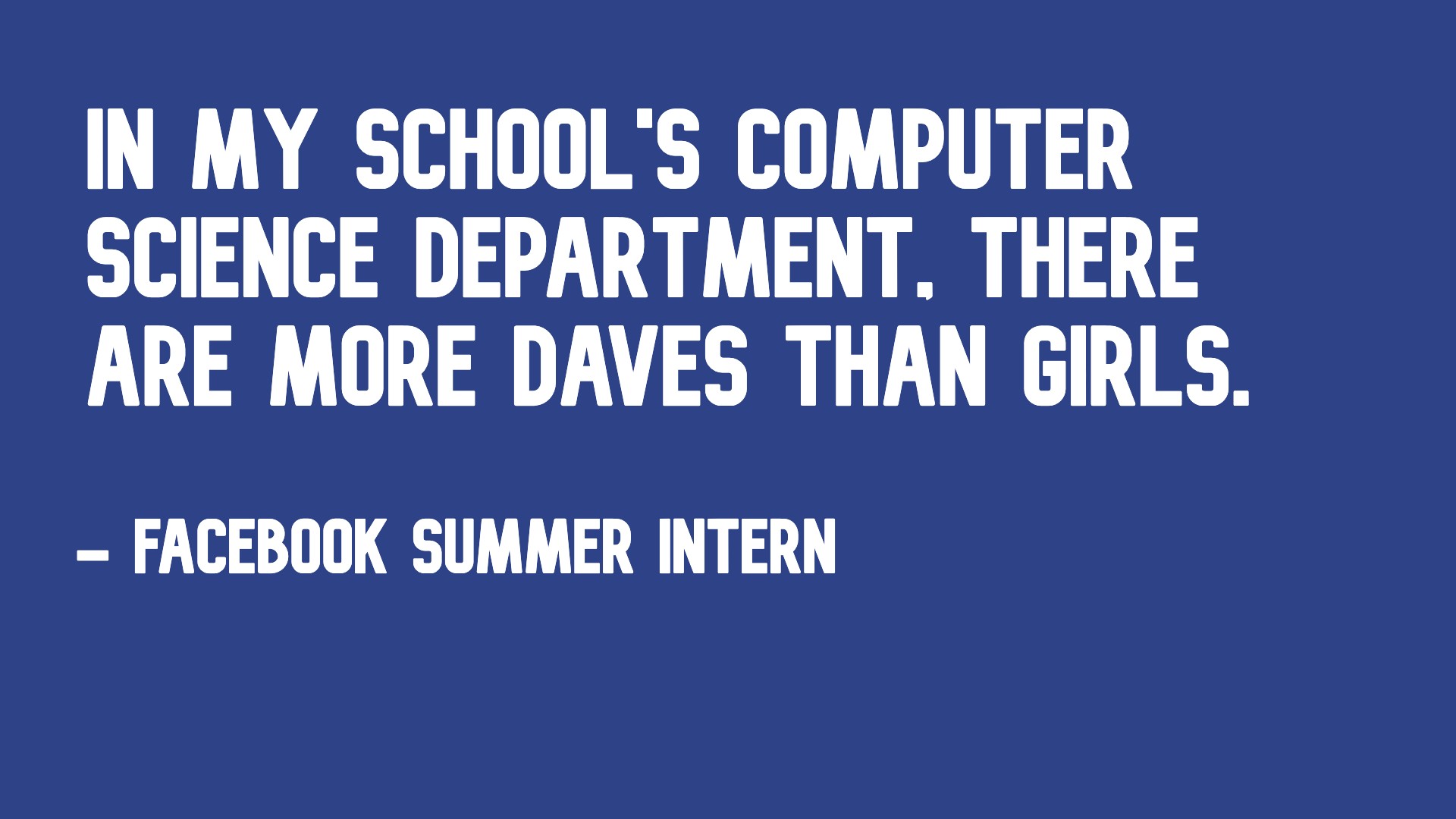
Fear is at the root of so many of the barriers that women face. Fear of not being liked. Fear of making the wrong choice. Fear of drawing the attention. Fear of overreaching. Fear of being judged. Fear of failure. And the holy trinity of fear: the fear of being a bad mother/wife/daughter.
My favorite poster reads, “What would you do if you weren’t afraid?”

Sit at the table
The keynote speaker, Dr. Peggy Mcintosh, gave a talk called “Feeling Like a Fraud”. She explained that many people but especially women, feel fraudulent when they are praised for their accomplishments. Instead of feeling worthy of recognition they feel undeserving and guilty as if a mistake has been made.
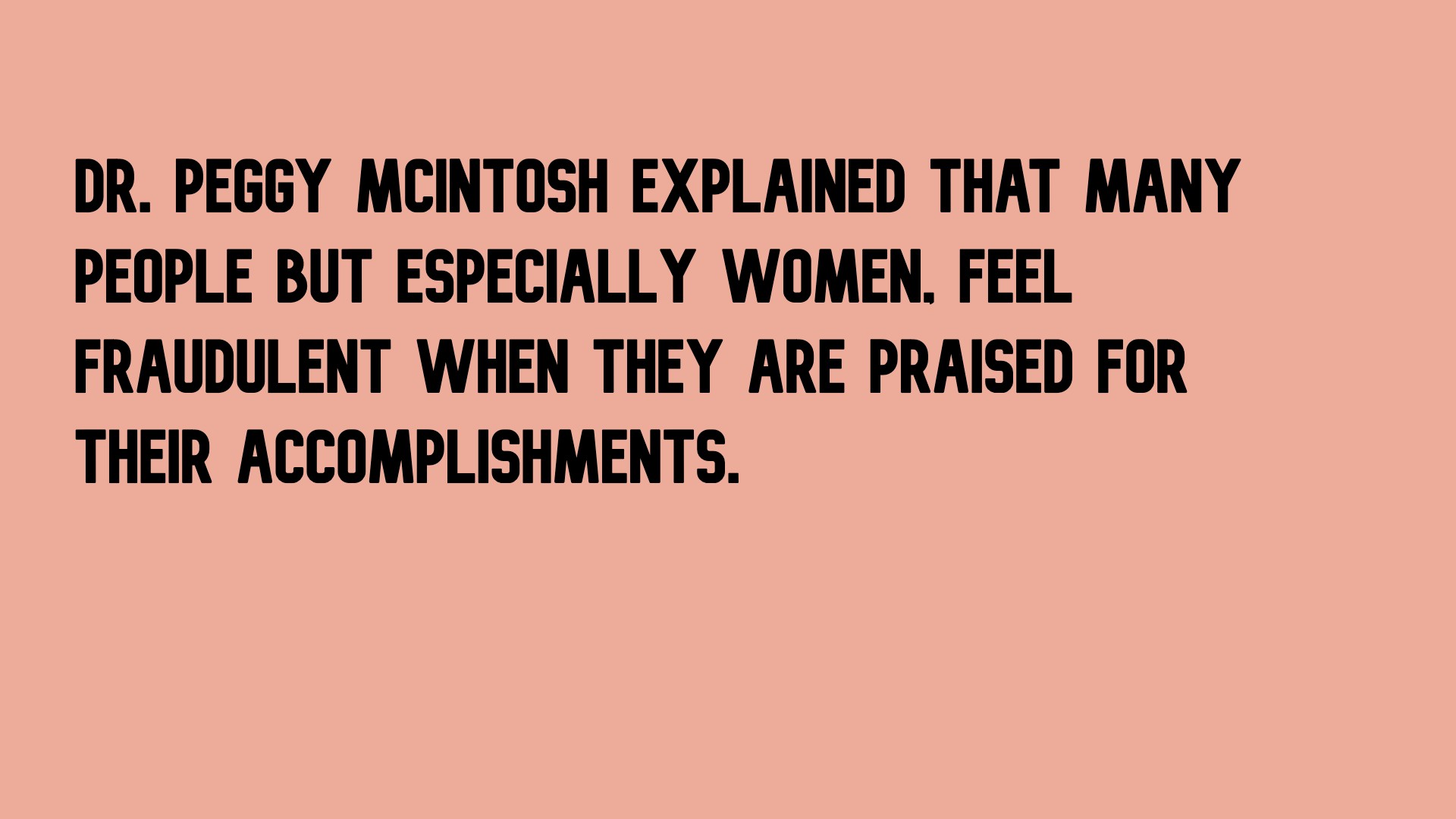
I thought it was the best speech I had ever heard. I was leaning forward in my chair, nodding vigorously.
At the joint reception that followed the ceremony, I told one of my males classmates about Dr. McINtosh’s fantastic speech explaining how we all feel like frauds. He looks at me, confused, and asked, “Why would that be interesting”? Carrie and I later joked that the speech to men was probably something like “How to Cope in a World Where not Everyone is as Smart as You”.
Even the wildly successful writer and actress Tina Fey has admitted to these feelings. She once explained to a British newspaper, “ […] Seriously, I’ve just realized that almost everyone is a fraud, so I try not to feel too bad about it.”
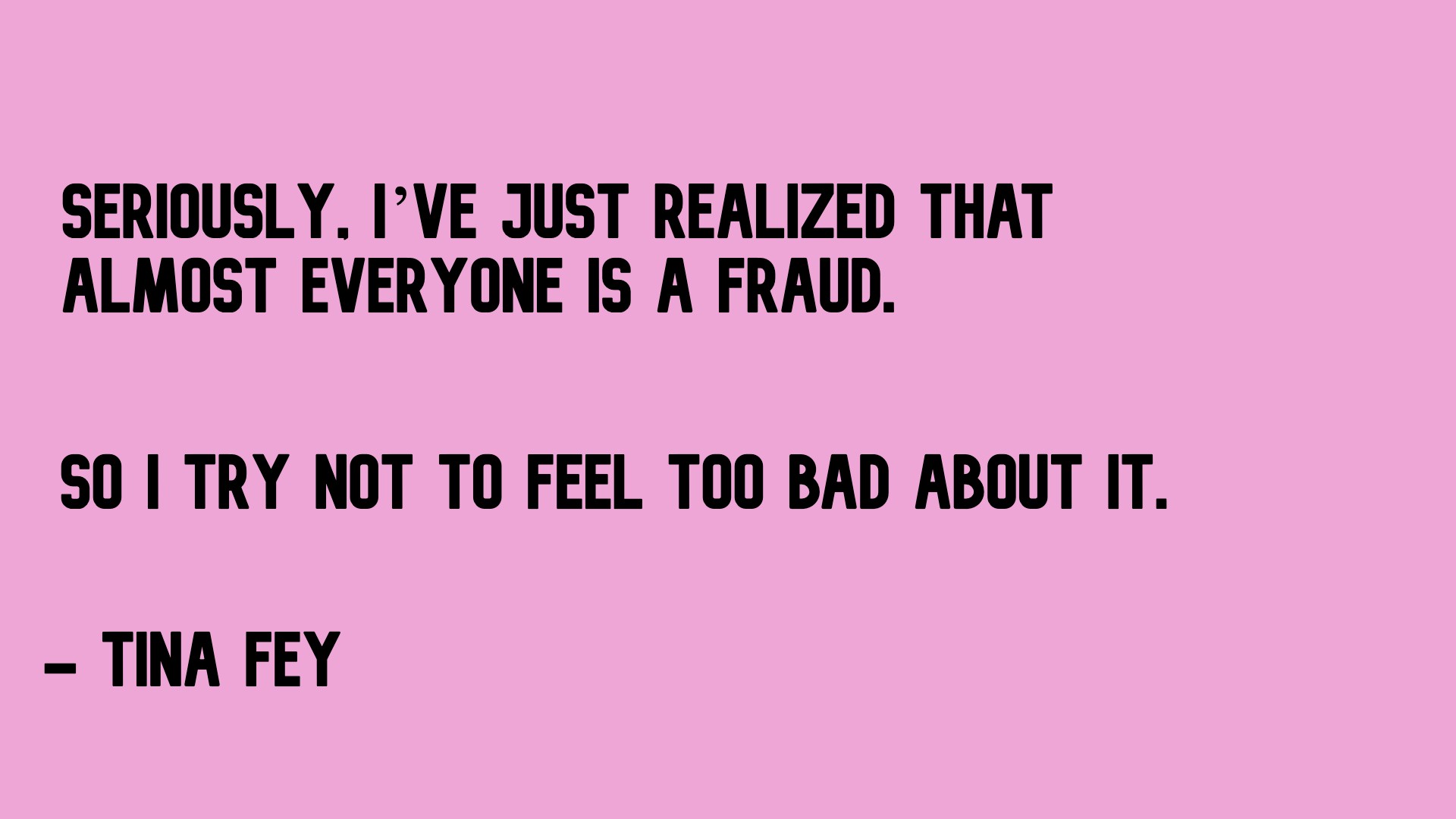
Multiple studies in multiple industries show that women often judge their own performance as worse than it actually is, while men judge their own performance as better than it actually is. Assessments of students in a surgery rotation found that when asked to evaluate themselves, the female students gave themselves lower scores than the male students despite faculty evaluations that showed the women outperformed the men. [4]
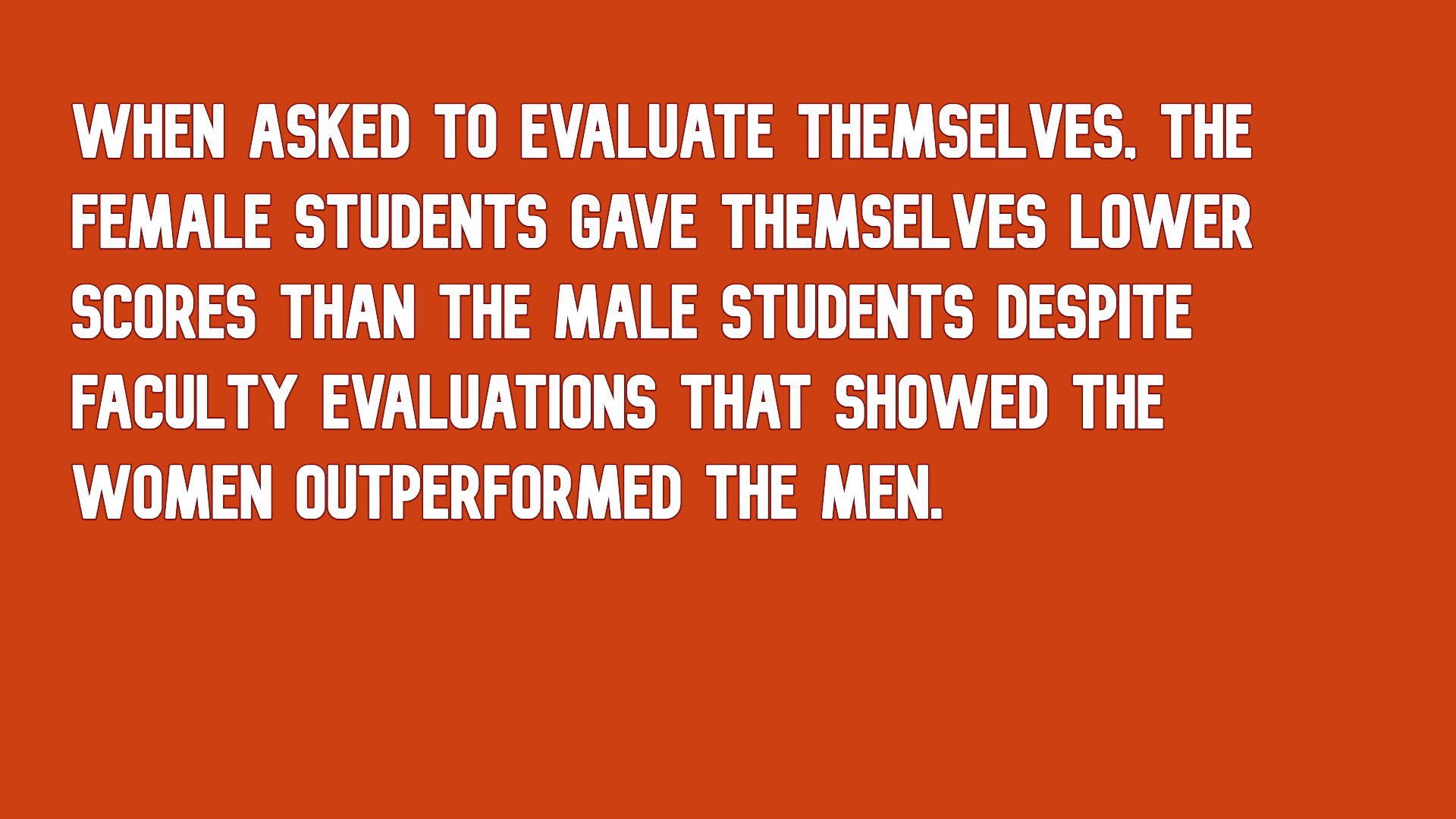
When a man fails, he points to factors like “didn’t study enough” or “not interested in the subject matter.” When a woman fails, she is more likely to believe it is due to an inherent lack of ability. And in situations where a man and a woman each receive negative feedback, the woman’s self-confidence and self-esteem drop to a much greater degree.
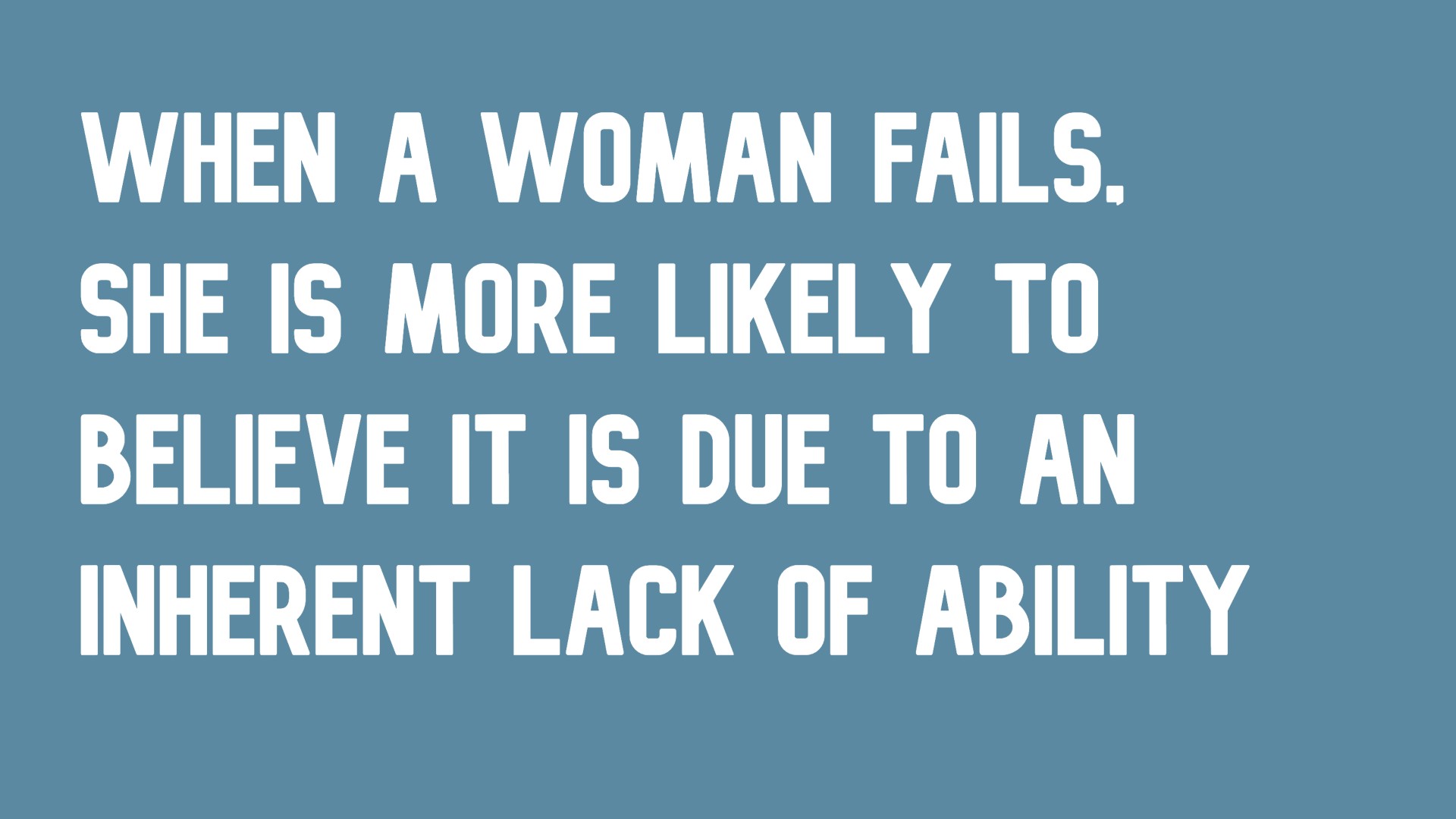
I learned over time that while it was hard to shake feelings of self-doubt, I could understand that there was a distortion. I would never possess my brother’s effortless confidence, but I could challenge the notion that I was constantly headed for failure. When I felt like I was not capable of doing something, I’d remind myself that I did not fail all of my exams in college. Or even one. I learned to undistort the distortion.
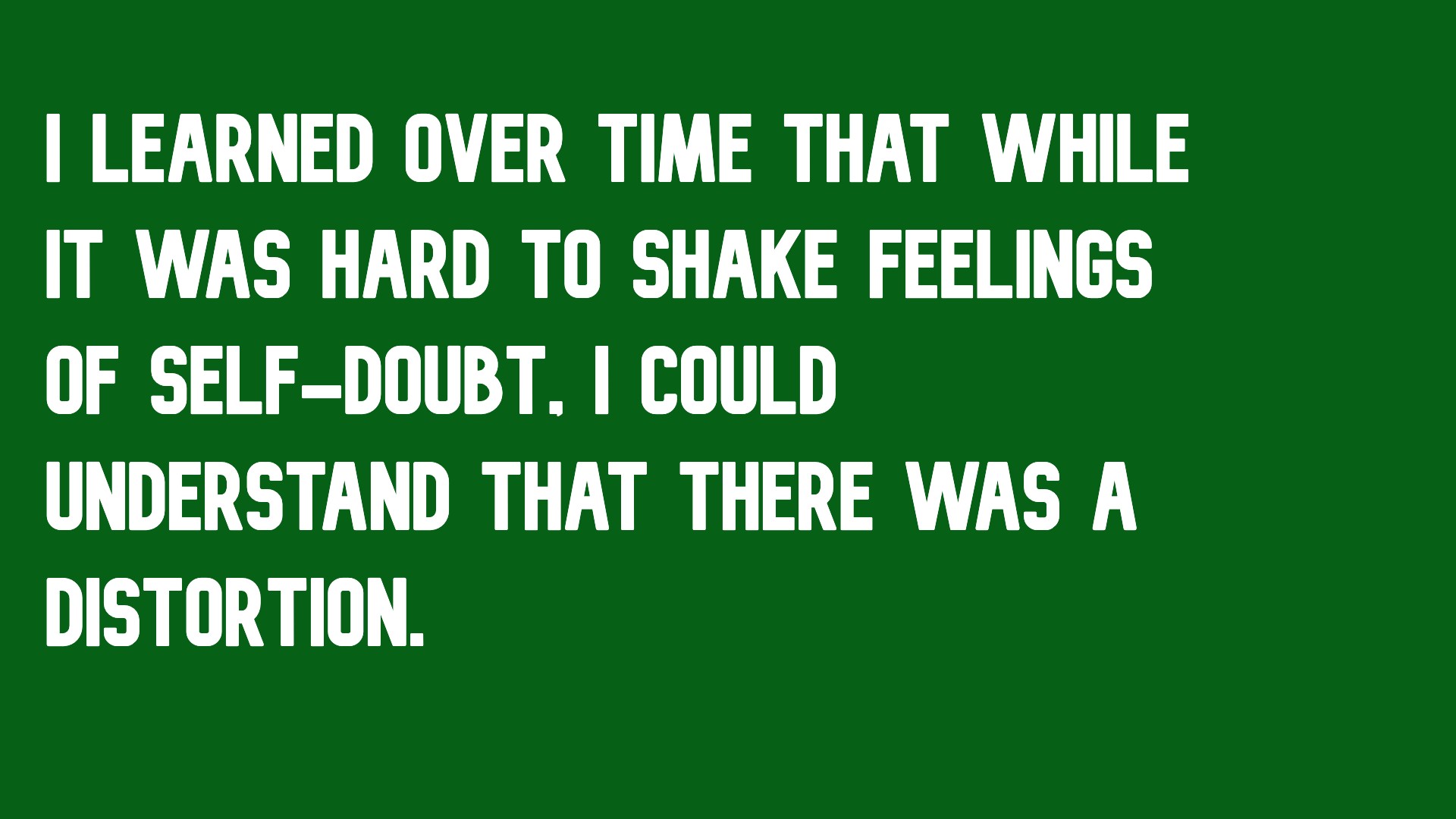
One of the things I tell people these days is that there is no perfect fit when you’re looking for the next big thing to do. You have to take opportunities and make an opportunity fit for you, rather than the other way around.
In 2003, Columbia Business School professor Frank Flynn and New York University professor Cameron Anderson ran an experiment to test perceptions of men and women in the workplace. They started with a Harvard Business School case study about a real-life entrepreneur named Heidi Roizen. The case described how Roizen became a successful venture capitalist by using her “outgoing personality … and vast personal and professional network [that] included many of the most powerful business leaders in the technology sector.” Flynn and Anderson assigned half of the students to read Heidi’s story and gave the other half the same story with just one difference—they changed the name “Heidi” to “Howard.” Professors Flynn and Anderson then polled the students about their impressions of Heidi or Howard. The students rated Heidi and Howard as equally competent, which made sense since “their” accomplishments were completely identical. Yet while students respected both Heidi and Howard, Howard came across as a more appealing colleague. Heidi, on the other hand, was seen as selfish and not “the type of person you would want to hire or work for.” The same data with a single difference— gender—created vastly different impressions
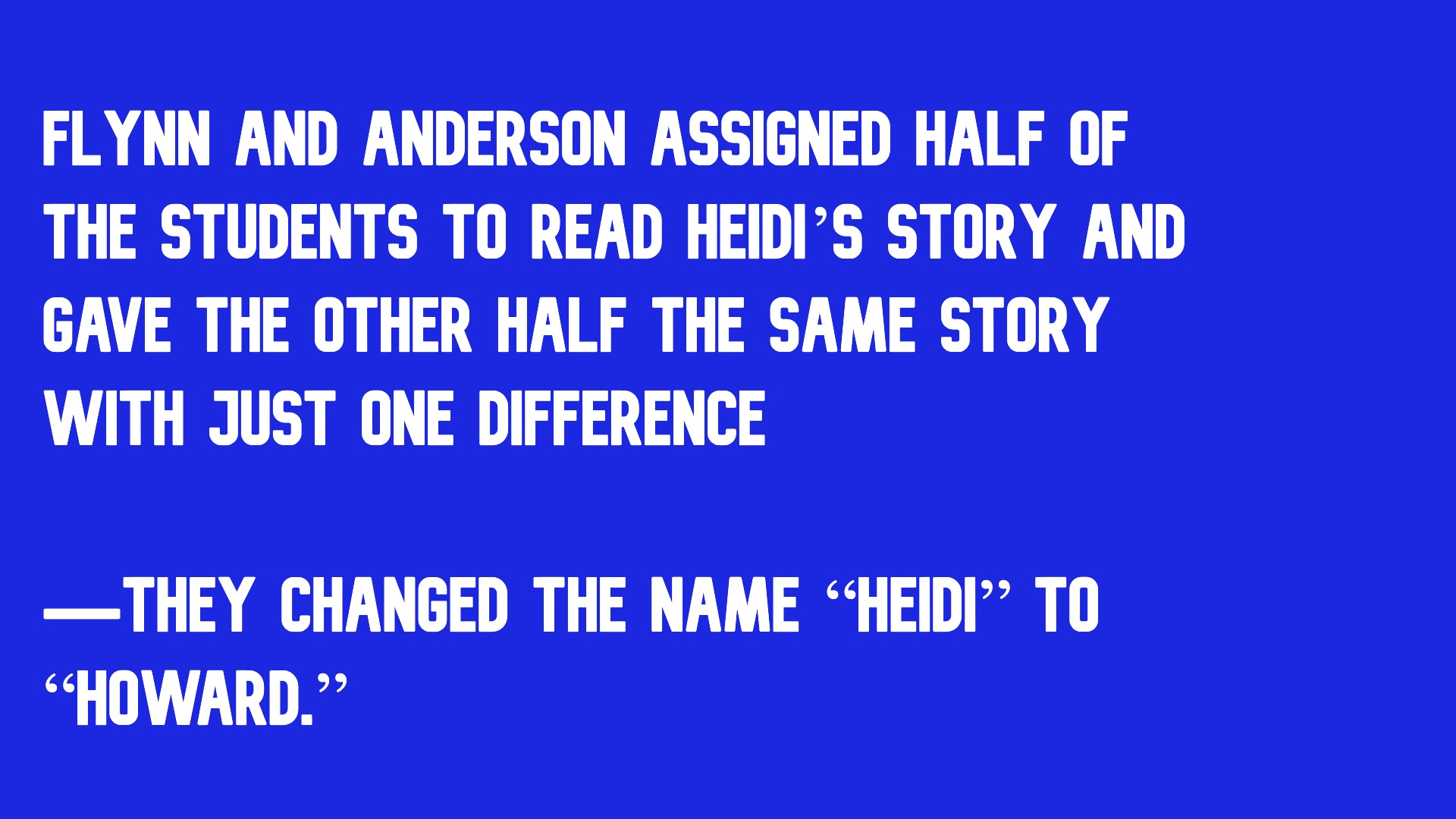
Success and Likeability
If a woman is competent, she does not seem nice enough. If a woman seems really nice, she is considered more nice than competent. Since people want to hire and promote those who are both competent and nice, this creates a huge stumbling block for women.
Most people, myself included, really want to be liked—and not just because it feels good. Being liked is also a key factor in both professional and personal success. A willingness to make an introduction or advocate for or promote someone depends upon having positive feelings about that person.
Owning one’s success is key to achieving more success. Professional advancement depends upon people believing that an employee is contributing to good results. Men can comfortably claim credit for what they do as long as they don’t veer into arrogance. For women, taking credit comes at a real social and professional cost. In fact, a woman who explains why she is qualified or mentions previous successes in a job interview can lower her chances of getting hired.
I have advised many women to preface negotiations by explaining that they know that women often get paid less than men so they are going to negotiate rather than accept the original offer. By doing so, women position themselves as connected to a group and not just out for themselves; in effect, they are negotiating for all women. And as silly as it sounds, pronouns matter. Whenever possible, women should substitute “we” for “I.” A woman’s request will be better received if she asserts, “We had a great year,” as opposed to “I had a great year.” 20
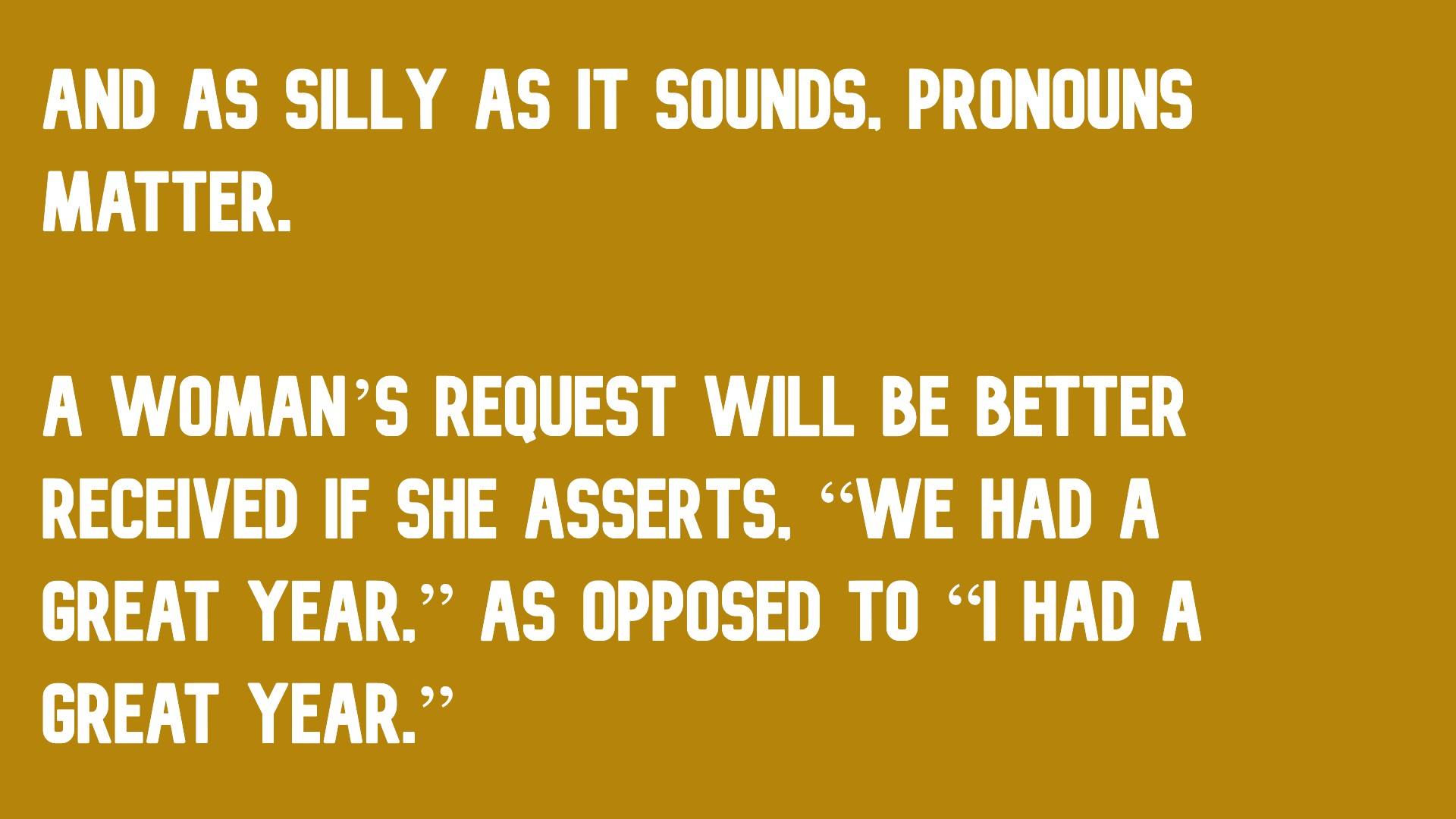
[…] Women, however, have to justify their requests. One way of doing this is to suggest that someone more senior encouraged the negotiation (“My manager suggested I talk with you about my compensation”) or to cite industry standards (“My understanding is that jobs that involve this level of responsibility are compensated in this range”).
It’s a jungle gym, not a ladder
An internal report at Hewlett-Packard revealed that women only apply for open jobs if they think they meet 100 percent of the criteria listed. Men apply if they think they meet 60 percent of the requirements. 7 This difference has a huge ripple effect. Women need to shift from thinking “I’m not ready to do that” to thinking “I want to do that— and I’ll learn by doing it.”
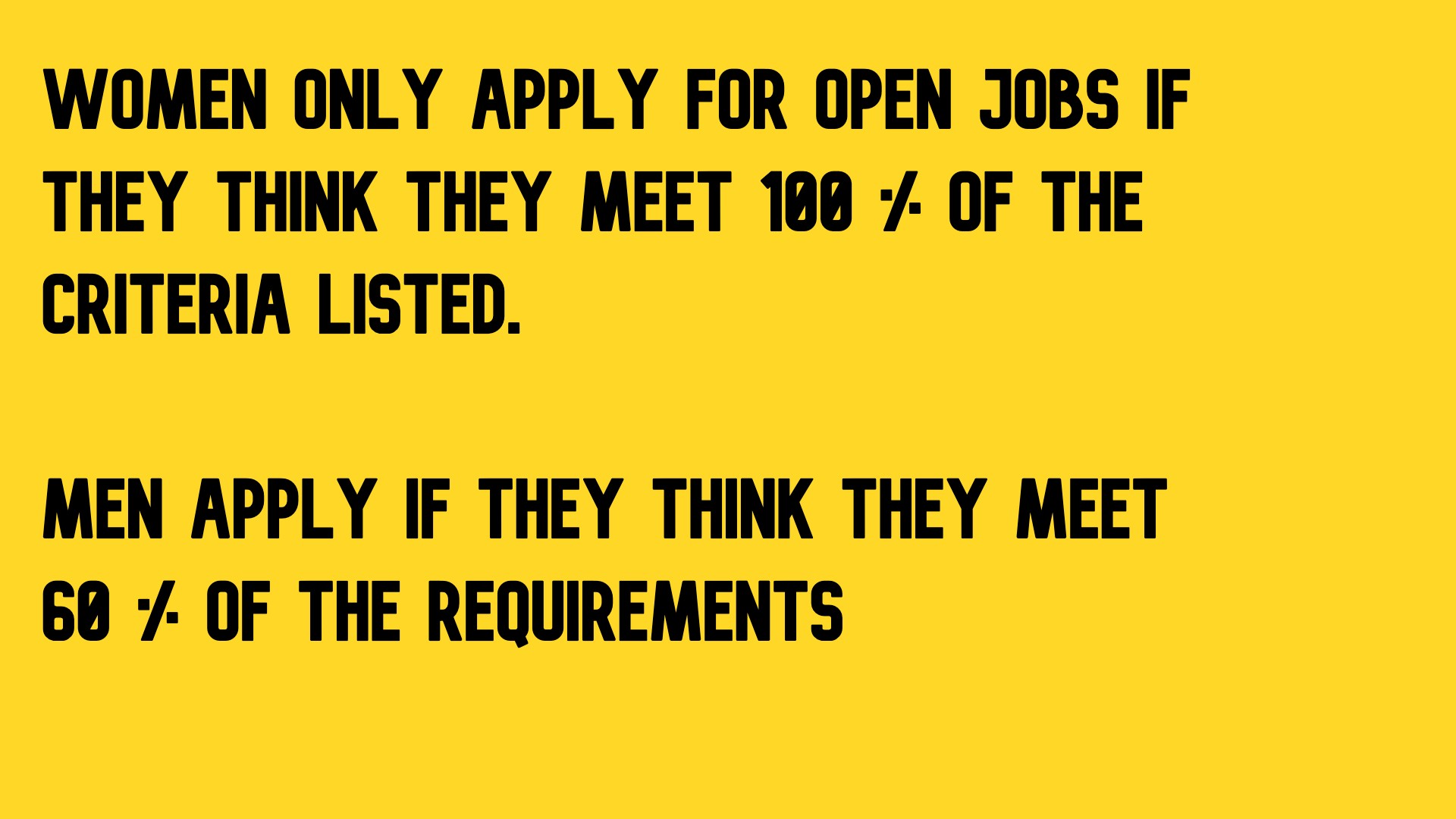
Women are also more reluctant to apply for promotions even when deserved, often believing that good job performance will naturally lead to rewards. Carol Frohlinger and Deborah Kolb, founders of Negotiating Women, Inc., describe this as the “Tiara Syndrome,” where women “expect that if they keep doing their job well someone will notice them and place a tiara on their head.” In a perfect meritocracy, tiaras would be doled out to the deserving, but I have yet to see one floating around an office. Hard work and results should be recognized by others, but when they aren’t, advocating for oneself becomes necessary. As discussed earlier, this must be done with great care. But it must be done.
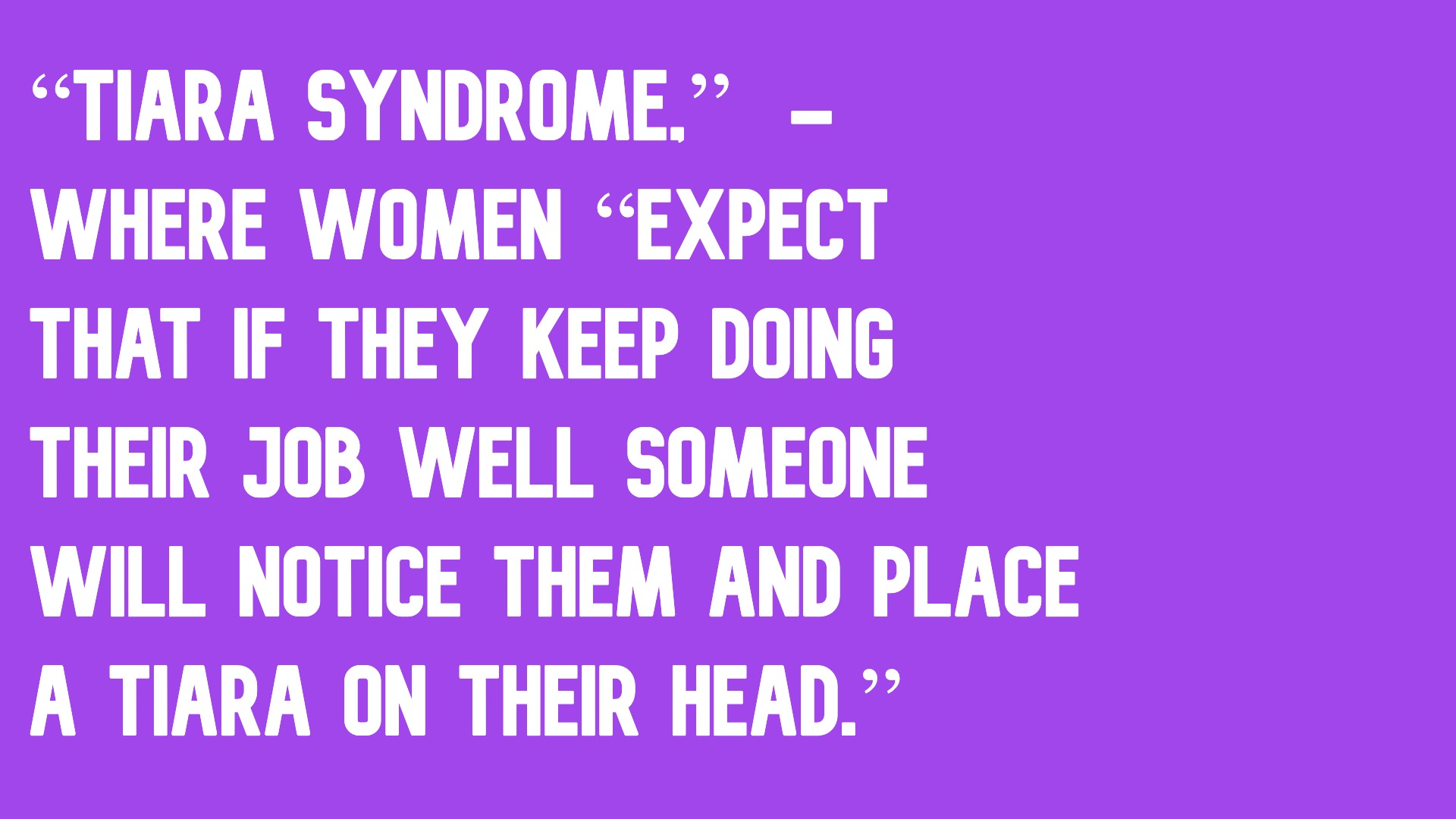
One of my favorite quotes comes from author Alice Walker, who observed, “The most common way people give up their power is by thinking they don’t have any.” Do not wait for power to be offered. Like that tiara, it might never materialize. Are you my mentor?
Using a mentor’s time to validate feelings may help psychologically, but it’s better to focus on specific problems with real solutions. Most people in the position to mentor are quite adept at problem solving. Give them a problem to solve.
Don’t leave before you leave
- What I am arguing is that the time to scale back is when a break is needed or when a child arrives— not before, and certainly not years in advance. The months and years leading up to having children are not the time to lean back, but the critical time to lean in. Make your partner a real partner
- Currently, fathers make up less than 4 percent of parents who work full-time inside the home, and many report that it can be very isolating.
- In fact, the risk of divorce reduces by about half when a wife earns half the income and a husband does half the housework.
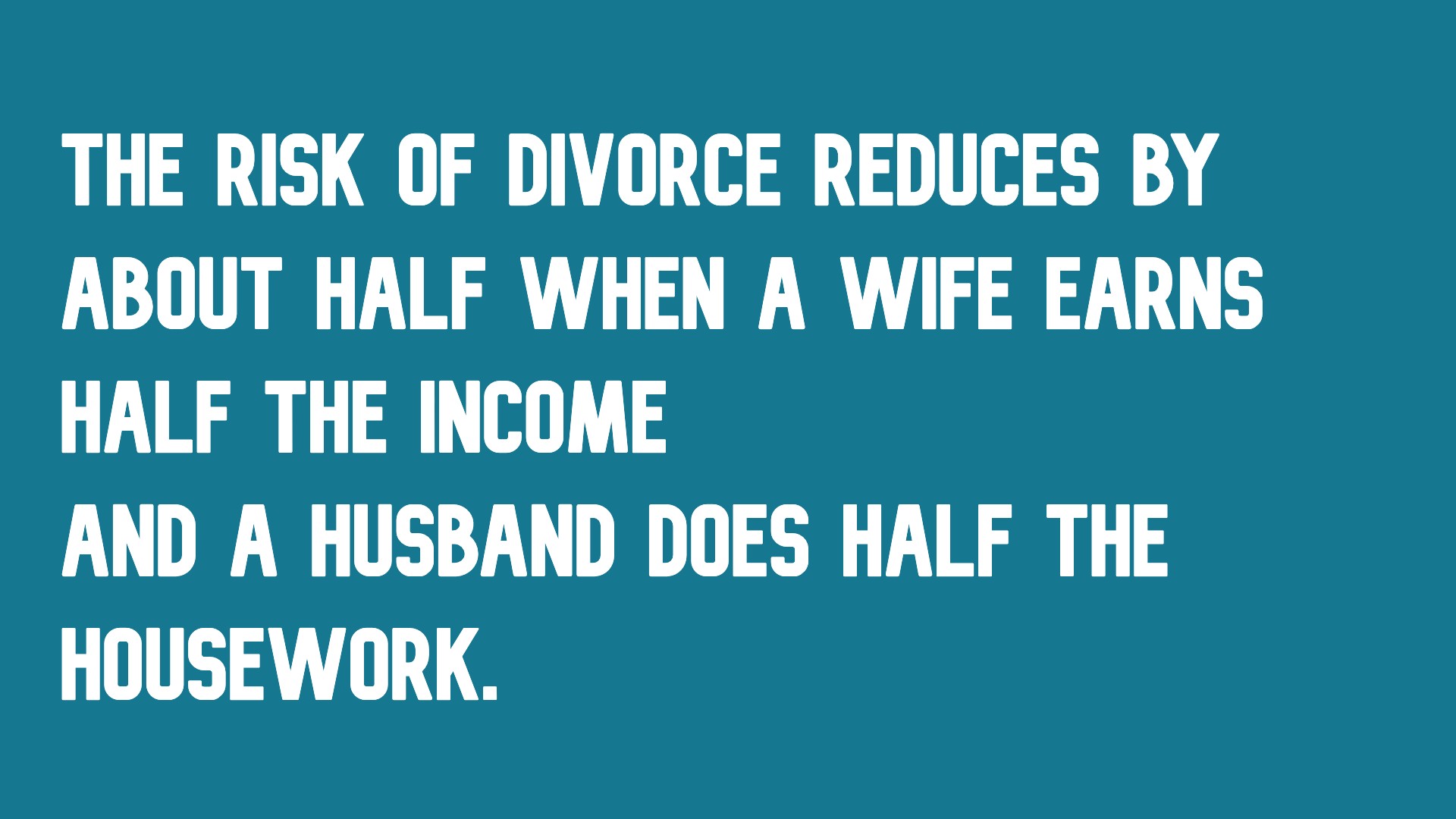 Also—and many might find this the most motivating factor—couples who share domestic responsibilities have more sex. make a pass at his wife might be to do the dishes. It may be counterintuitive, but the best way for a man to make a pass at his wife might be to do the dishes.
Also—and many might find this the most motivating factor—couples who share domestic responsibilities have more sex. make a pass at his wife might be to do the dishes. It may be counterintuitive, but the best way for a man to make a pass at his wife might be to do the dishes.
The Myth of Doing It All
- Trying to do it all and expecting that it all can be done exactly right is a recipe for disappointment. Perfection is the enemy
If I could go back and change one thing about how I lived in those early years, I would force myself to get more sleep.
- My first six months at Facebook were really hard. I know I’m supposed to say “challenging,” but “really hard” is more like it. A lot of the company followed Mark’s lead and worked night-owl engineering hours. I would schedule a meeting with someone for 9:00 a.m. and the person would not show up, assuming that I meant 9:00 p.m.
- Like many, I excel at self- flagellation. And even with my vast support system, there are times when I feel pulled in too many directions. But when I dwell less on the conflicts and compromises, and more on being fully engaged with the task at hand, the center holds and I feel content.
Let’s start talking about it
While styles have relaxed, women still worry about sticking out too much. I know an engineer at a tech start-up who removes her earrings before going to work so coworkers won’t be reminded that she is—shhh!—not a man.
Ken openly acknowledges that in meetings, both men and women are more likely to interrupt a woman and give credit to a man for an idea first proposed by a woman. When he witnesses either of these behaviors, he stops the meeting to point it out. Coming from the top, this really makes employees think twice.
A more junior woman (or man) can also intervene in the situation when a female colleague has been interrupted. She can gently but firmly tell the group, “Before we move on, I’d like to hear what [senior woman] had to say.” This action not only benefits the senior woman but can raise the stature of the junior woman as well, since speaking up for someone else displays both confidence and a communal spirit. The junior woman comes across as both competent and nice.
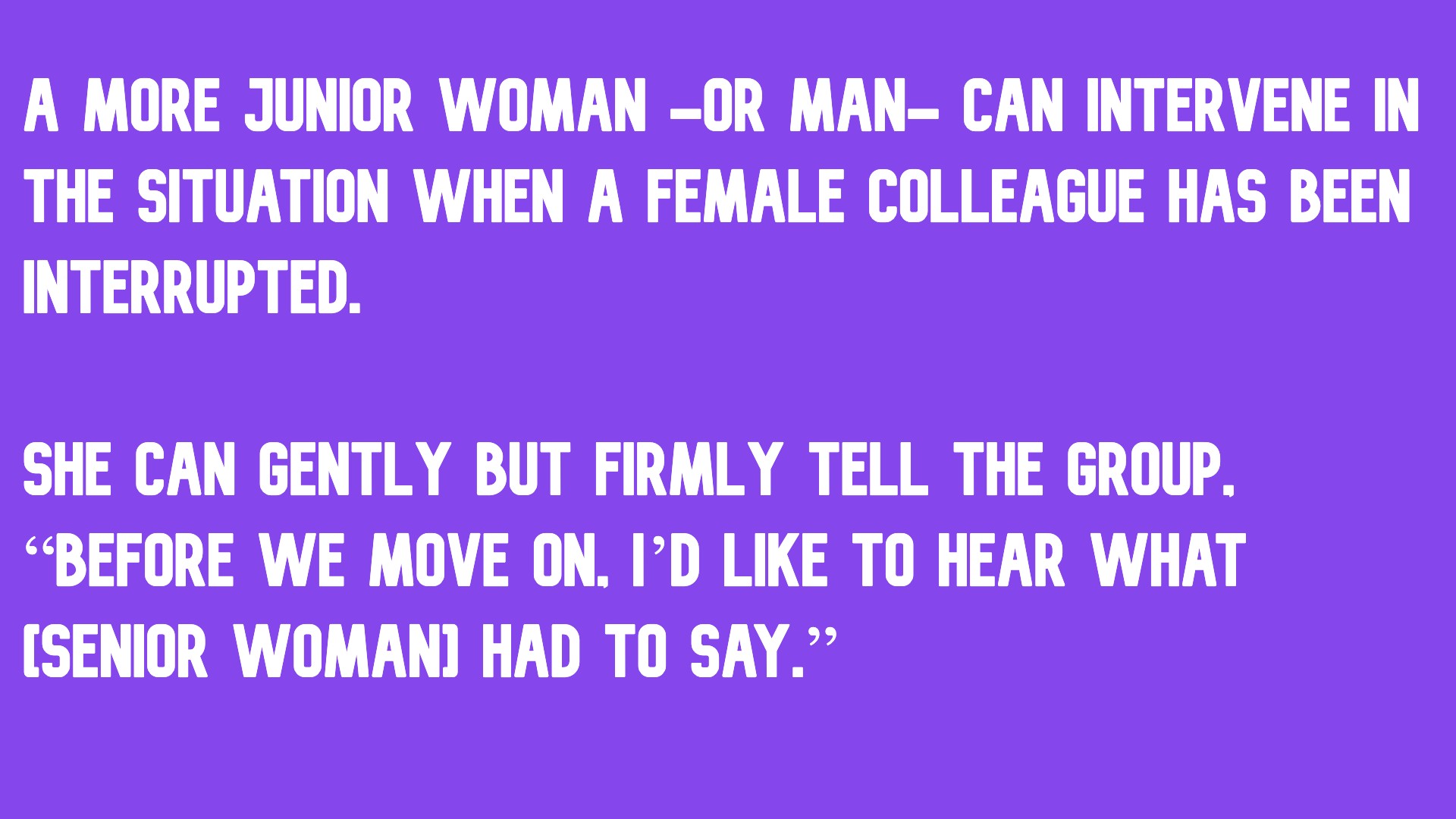
Most people would agree that gender bias exists … in others. We, however, would never be swayed by such superficial and unenlightened opinions. Except we are. Our preconceived notions about masculinity and femininity influence how we interact with and evaluate colleagues in the workplace.
A 2012 study found that when evaluating identical résumés for a lab manager position from a male student and a female student, scientists of both sexes gave better marks to the male applicant. Even though the students had the same qualifications and experience, the scientists deemed the female student less competent and offered her a lower starting salary and less mentoring.
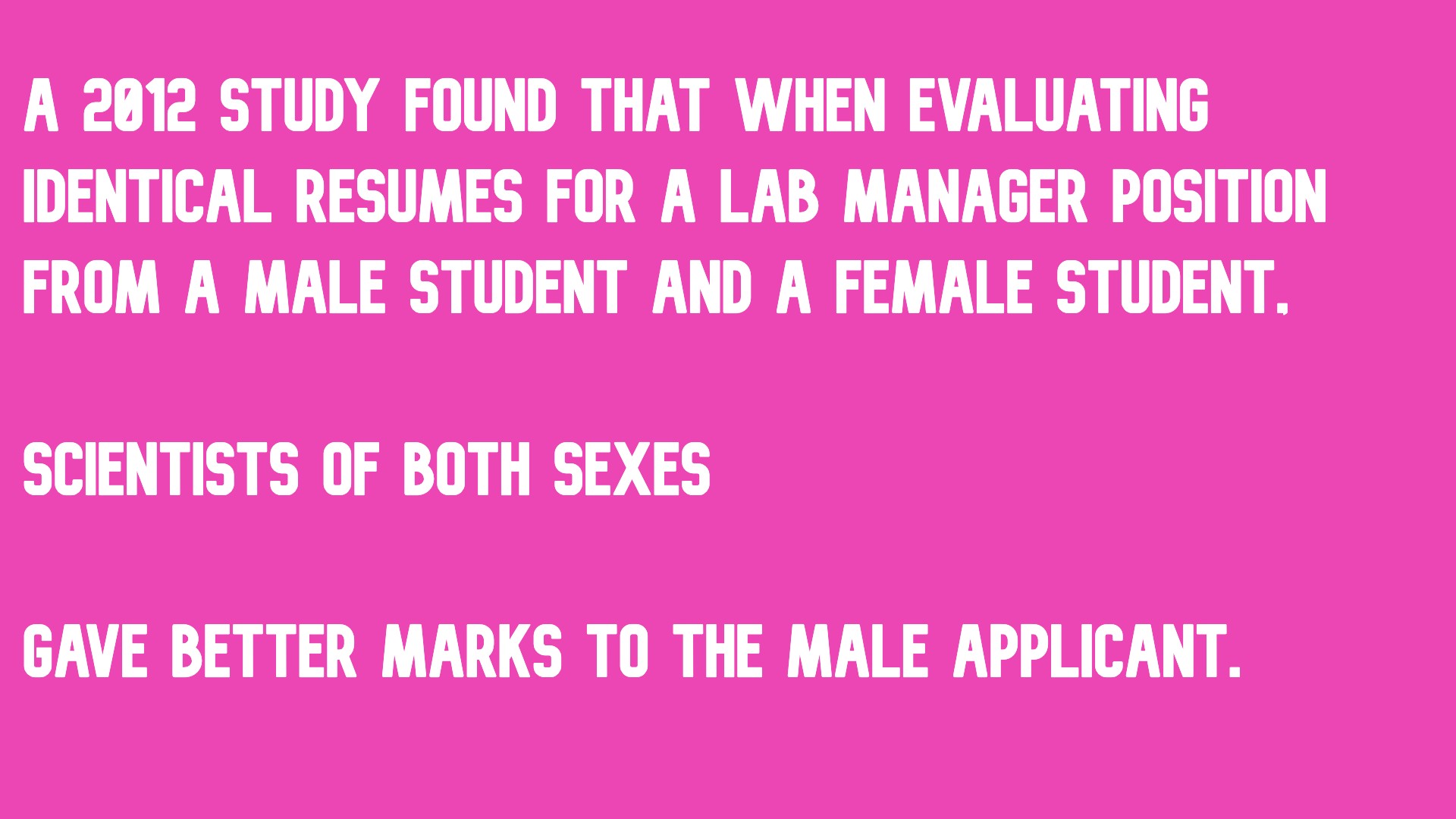
Other studies of job applicants, candidates for scholarships, and musicians auditioning for orchestras have come to the same conclusion: gender bias influences how we view performance and typically raises our assessment of men while lowering our assessment of women. Even today, gender-blind evaluations still result in better outcomes for women.
All of us, myself included, are biased, whether we admit it or not. And thinking that we are objective can actually make this even worse, creating what social scientists call a “bias blind spot.” This blind spot causes people to be too confident about their own powers of objectivity so that they fail to correct for bias
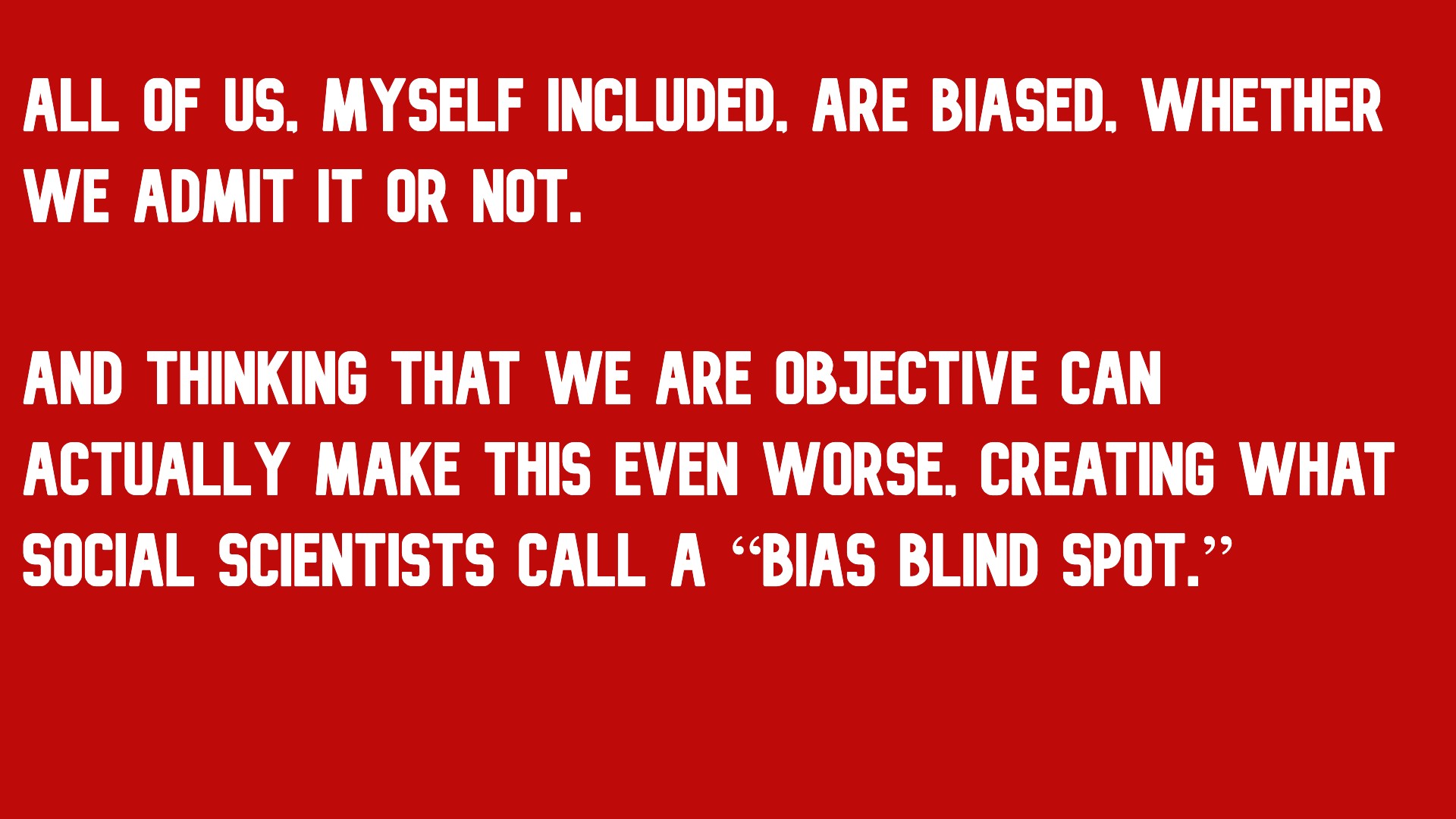
Working Together Toward Equality
“We need to look out for one another, work together, and act more like a coalition. As individuals, we have relatively low levels of power. Working together, we are fifty percent of the population and therefore have real power.”
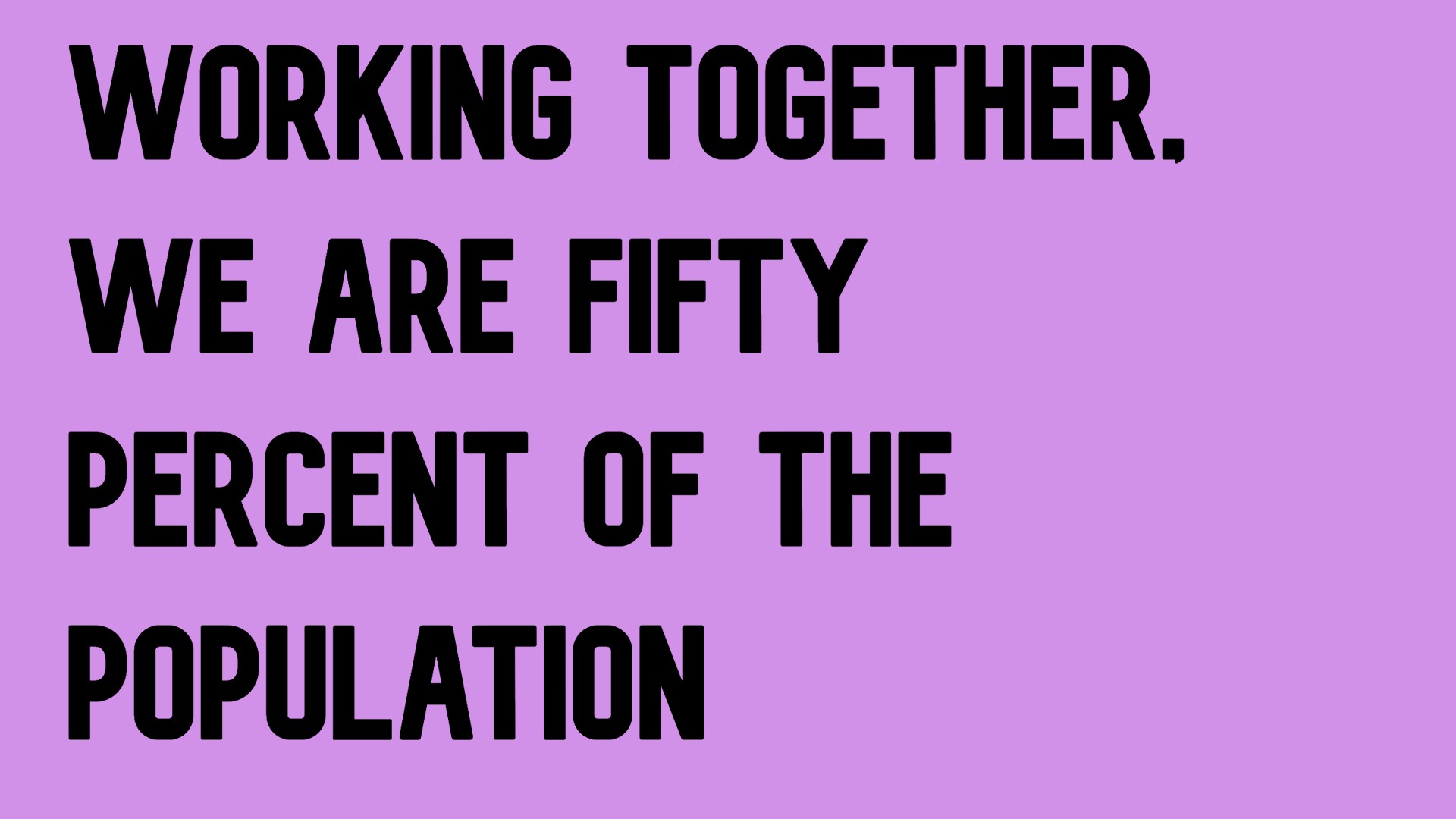
One study found that female professors believed that male Ph.D. students were more committed to their careers than female Ph.D. students, even though a survey of the students found no gender difference in their reported levels of commitment.
Women’s negative views of female coworkers are often seen as an objective assessment—more credible than the views of men. When women voice gender bias, they legitimize it. **Obviously, a negative attitude cannot be gender based if it comes from another woman, right? Wrong.**Often without realizing it, women internalize disparaging cultural attitudes and then echo them back. As a result, women are not just victims of sexism, they can also be perpetrators.
There is hope that this attitude is changing. A recent survey found that “high-potential women” working in business want to “pay it forward,” and 73 percent have reached out to other women to help them develop their talents. Let’s keep talking about it
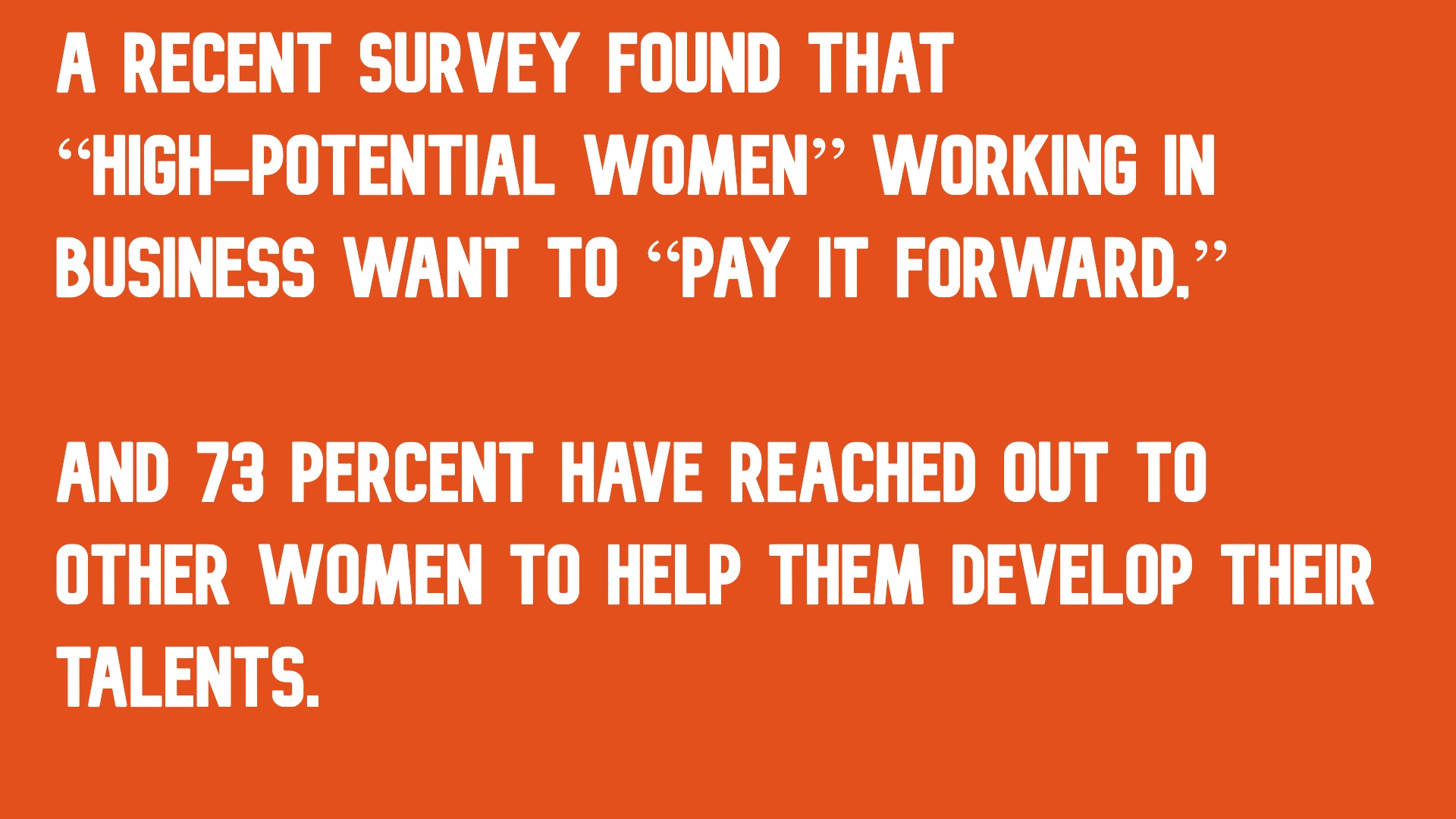
I also encourage you to visit www.leanin.org for practical education and personal experiences that can help you reach your goals. Here you can explore topics critical to your success—from negotiating effectively to understanding your strengths. You also can create and join Lean In Circles, small peer groups that meet in person for ongoing encouragement and development.

